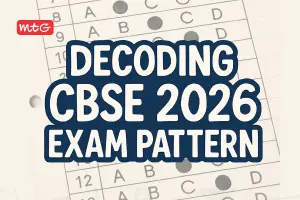NCERT class 10 science chapter 7 – “How do Organisms Reproduce” discusses the mechanisms and the need to reproduce. It also teaches how reproducing organisms create new individuals that look very much like themselves. Practice multiple-choice questions (MCQs) to prepare for the objective questions for the CBSE Board Exams. We have provided Class 10 MCQ Questions on the “How do Organisms Reproduce” along with detailed explanations. CBSE is putting more focus on MCQs as they help in understanding the concepts thoroughly.
MCQs are very different from subjective questions so practicing and understanding how to arrive at correct answers in MCQs is very important. Students should practice all the MCQs with answers provided to review the key concepts and familiarize themselves with the types of questions that might come in the board exam.
Check Complete Syllabus – CBSE Class 10 Science Syllabus
You will also like – CBSE Class 10 Sample Paper – Free PDF Download
Check Complete Class 10 MCQ – Class 10 Science MCQ
Topics covered in “How do Organisms Reproduce”
- Do organisms create exact copies of themselves?
- The Importance of Variation
- Modes of reproduction used by single organisms
- Fission
- Fragmentation
- Regeneration
- Budding
- Vegetative Propagation
- Spore Formation
- Sexual reproduction
- Why the Sexual Mode of Reproduction?
- Sexual Reproduction in Flowering Plants
- Reproduction in Human Beings
- Male Reproductive System
- Female Reproductive System
- What happens when the Egg is not Fertilised?
- Reproductive Health
CBSE Class 10 Science How do Organisms Reproduce MCQs – PDF Download
Answers-
Summary for NCERT Class 10 Science Chapter 7 – “How do Organisms Reproduce”
- Reproduction, unlike other life processes, is not essential to maintain the life of an individual organism.
- Reproduction involves creation of a DNA copy and additional cellular apparatus by the cell involved in the process.
- Various organisms use different modes of reproduction depending on their body design.
- In fission, many bacteria and protozoa simply divide into two or more daughter cells.
- Organisms such as hydra can regenerate if they are broken into pieces. They can also give out buds which mature into new individuals.
- Roots, stems and leaves of some plants develop into new plants through vegetative propagation.
- These are examples of asexual reproduction where new generations are created from a single individual.
- Sexual reproduction involves two individuals for the creation of a new individual.
- DNA copying mechanisms creates variations which are useful for ensuring the survival of the species. Modes of sexual reproduction allow for greater variation to be generated.
- Reproduction in flowering plants involves transfer of pollen grains from the anther to the stigma which is referred to as pollination. This is followed by fertilisation.
- Changes in the body at puberty, such as increase in breast size in girls and new facial hair growth in boys, are signs of sexual maturation.
- The male reproductive system in human beings consists of testes which produce sperms, vas deferens, seminal vesicles, prostate gland, urethra and penis.
- The female reproductive system in human beings consists of ovaries, fallopian tubes, uterus and vagina.
- Sexual reproduction in human beings involves the introduction of sperm in the vagina of the female. Fertilisation occurs in the fallopian tube.
- Contraception to avoid pregnancy can be achieved by the use of condoms, oral pills, copper-T and other methods.






























